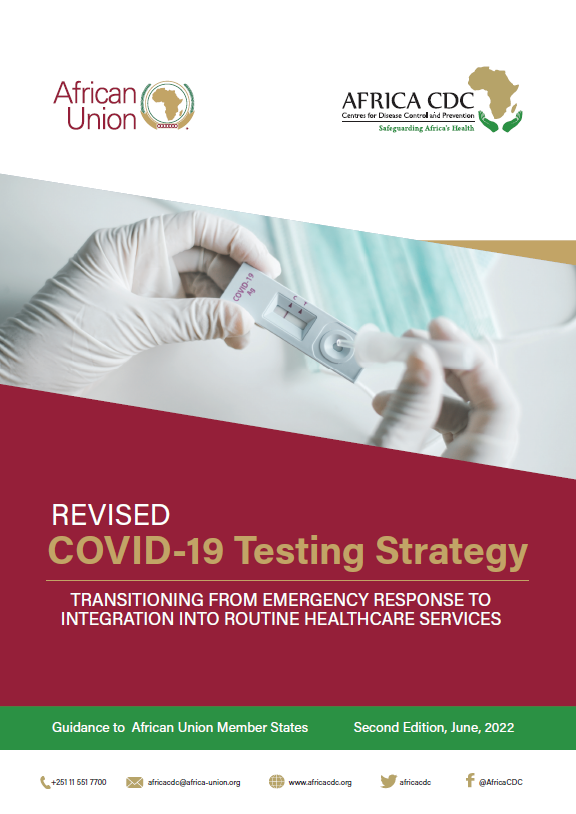EXECUTIVE SUMMARY
Testing to identify people infected with SARS-COV-2, the virus that causes COVID-19, has been central to the control of the disease. The African Union Commission, through the Africa Centres for Disease Control and Prevention (Africa CDC) and partners, implemented a number of key initiatives to expand COVID-19 testing in Africa including developing guidance on the use of rapid antigen tests, self-testing, and genomics surveillance.
During the initial emergency response phase of the COVID-19 pandemic, testing efforts concentrated on identifying individuals infected with SARS-COV-2 for timely isolation, contact tracing and clinical care to break the chain of transmission and minimize morbidity and mortality.
The purpose of this revised testing strategy is to guide AU Member States on the shift from the emergency response phase to the integration of COVID-19 testing and management into routine clinical and public healthcare services. It provides guidance on the provision of COVID-19 testing for clinical purposes and surveillance for public health response, as well as considerations for monitoring and evaluation approaches.
This revised guidance recommends that access to COVID-19 testing is decentralized as far as possible and made available at health facilities, and through the use of self tests to enable access to care and the mitigation of transmission. Testing should be prioritized for high-risk and vulnerable individuals presenting with acute onset of respiratory illness so that those found to be infected can benefit from clinical care and access to COVID-19 therapeutics and vaccines. COVID-19 testing should also be integrated with routine care and diagnosis, including for malaria, HIV, TB, influenza like illness and other respiratory infections.
